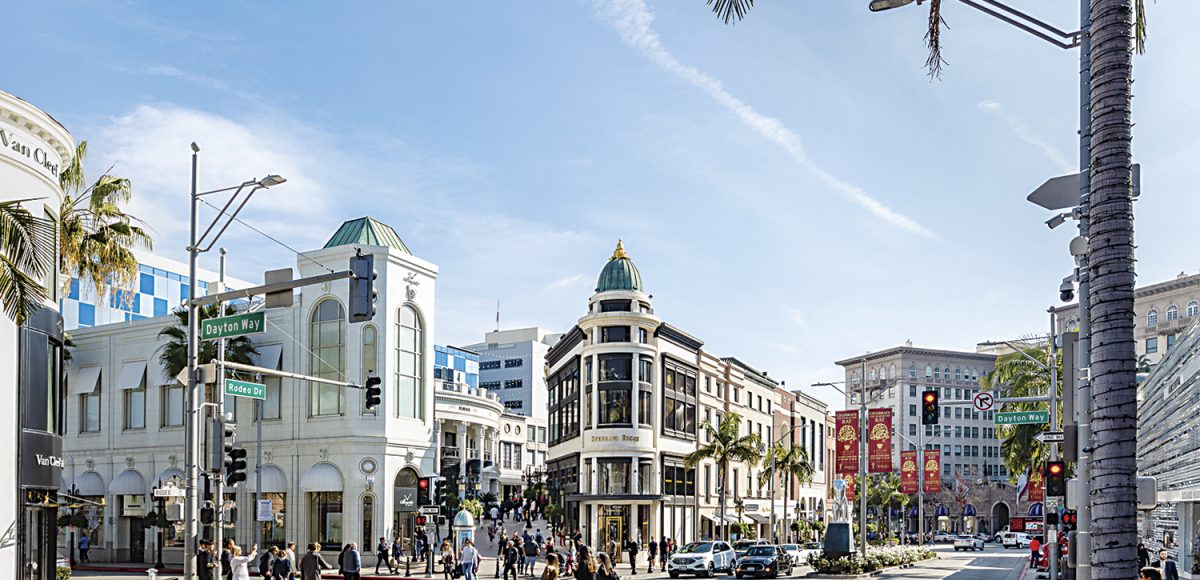The Beverly Hills City Council voted to approve a five-year increase of solid waste rates. While an earlier proposal scheduled the rate hike to begin in July 2021, the Council opted instead to delay the implementation until January 2022 because of the COVID-19 pandemic. The Council voted 4-1, with Councilmember John Mirisch dissenting.
While the City’s General Fund receives money from taxes (like the sales tax and transient occupancy tax), the City’s solid waste disposal is supported by an enterprise fund. This is a self-sufficient coffer maintained by service charges. For solid waste disposal, the service charges paid by residents and businesses goes toward refuse and recycling collection, yard waste and organic waste collection, and for material sorting and processing.
Beverly Hills has not seen any changes to its solid waste disposal rates since 2011, “despite the addition of State mandated programs for organics processing and several escalations in the price of landfill disposal and recycling processing,” the staff report reads. In March 2018, China dropped a bombshell on the world when it announced it would no longer buy most forms of recycling. For decades, China had readily accepted the world’s refuse–70 percent, or about 7 million tons a year. The ripples of their new policy stretch all the way to Beverly Hills. Add to this, the company the City contracts with to dispose its waste, Athens, scheduled a 61 percent cost increase.
To soften the sticker shock of a 61 percent increase, the City began discussing a gradual rate increase in the fall of 2019 that would be phased in over five years. City staff unveiled a proposal at the Nov. 17 City Council meeting, but the proposal drew criticism for not taking current economic conditions into account enough.
Staff presented the Council with three options at the Dec. 8 Regular Meeting. “Staff understands the impact of the pandemic on residential and commercial customers and has taken this into account as further rate scenarios were developed,” the staff report read. “This rate adjustment is meant to ensure fiscal responsibility in collecting the appropriate revenue and maintaining adequate reserves for the Solid Waste Enterprise so services can continue to be delivered at a high level.”
In the first alternative, the City would simply postpone the rate hikes by six months. The new start date of Jan. 1, 2022, would give residents a reprieve while the impacts of the pandemic hopefully subsided. While the delay would eat slightly into the enterprise fund’s reserves, they would recover by fiscal year 2025/26.
Scenario two would decrease, rather than increase, the existing solid waste rates by 5 percent. To make up the growing difference each year, the City would pay out of its reserves until those ran out by fiscal year 2023/24. Scenario three would simply see no change in rates at all. In that case, too, the City would supplement the difference out of the reserves.
As Director of Public Works Shana Epstein explained in an Oct. 21 town hall, the City can use the reserves in times of emergency.
“If we have major failure with our vehicles, they’re very expensive,” said Epstein. She also cited emergencies, like fires or earthquakes, that lead to significant debris. “There’s a lot of debris removal…We have to quickly mobilize contracts, mobilize additional vehicles, find property. All that is what we would use reserves for, to keep moving and keeping the City clean.”
“Reserves are important for a healthy fund and we really do look at the enterprise funds as though they were their own business,” said Councilmember Julian Gold.
The alternative proposals also took into consideration another critique of the original proposal. Namely, that the fee structure placed a disproportionate cost burden on those in some multifamily residential buildings.
Previously, the City charged multifamily residential customers “either a dwelling unit rate or a per container rate based on container size and frequency of collection,” according to the staff report.But because many multifamily residential customers with alley service share containers, they end up paying the same amount for less.
In response to feedback at the Nov. 17 City Council meeting, staff devised a new formula for calculating multifamily residential rates using the lot size and square footage of the building instead of a fixed rate.”
John Mirisch, the only dissenting vote, argued that the City should reduce the rate given the ongoing public health crisis. “It’s time for us to finally do something for the residents of the community we serve and so I won’t be supporting anything except a reduction,” he said.
Residents with outstanding questions regarding the implementation of new solid waste rates can email the Public Works Department at AskPW@beverlyhills.org or call 310-285-2467.







